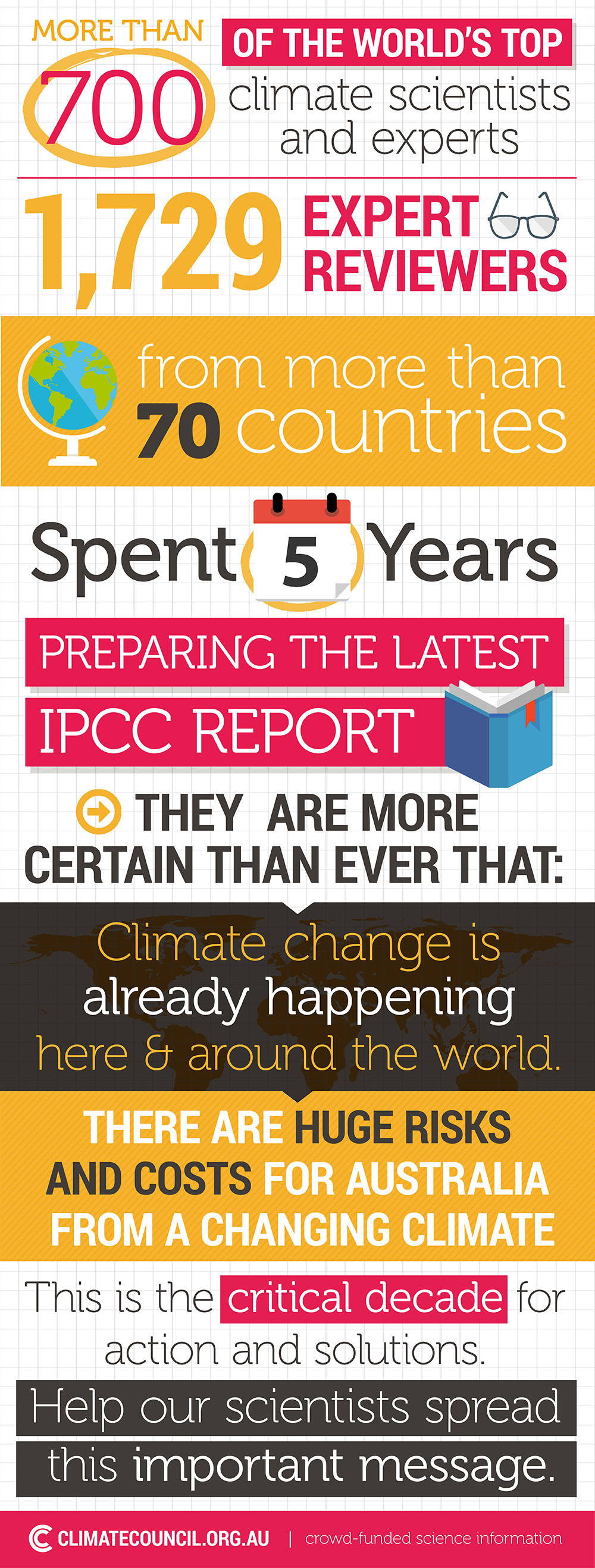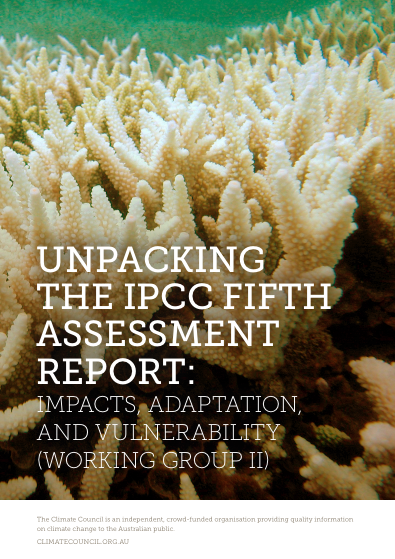Our team has summarised the findings of the latest IPCC report on impacts, adaptation and vulnerability

KEY MESSAGES:
1. The IPCC reports conclude that climate change is occurring as a result of human activities. This latest report from Working Group II confirms and reinforces the findings of the previous assessment report (AR4) published in 2007.
2. There is increased evidence that climate change is already affecting many natural and human systems and poses significant risks to human health, ecosystems, infrastructure, agricultural production and communities.
3. Key findings for Australia include:
- Marked decreases in agricultural production in the Murray-Darling Basin and south western and south eastern Australia could occur if projections of severe dry conditions are realised.
- There are significant future risks of increased loss of life, damage to property, and economic loss due to bushfires in southern Australia. •Since 1950 hot extremes have become more frequent and intense, while cold extremes have become rarer. Increased hot weather is expected to hit major population centres, with hot days, for example, in Melbourne expected to increase by 20 to 40% by 2030, and by up to 190% by 2070.
- The iconic Great Barrier Reef is under threat. Under current rates of ocean warming and acidification, coral reef systems could be eliminated by mid- to late-century. If average global temperatures rise above 2°C it is expected that few coral-dominated systems will survive.
- There are risks from increased frequency and intensity of flooding from extreme rainfall events, causing damage to infrastructure.
4. Reducing the risk in Australia of water shortages, bushfire weather, extreme heatwaves, and decreased agricultural production will depend on how rapidly we are able to reduce carbon emissions locally and globally, and on the how effectively we are able to implement adaptation measures.
5. The IPCC is the most authoritative international body on climate change science and impacts. IPCC assessment reports are subject to an extremely rigorous review process.
You can also follow the conversation on twitter: #climateimpacts
For more information see www.ipcc.ch/report/ar5/wg2/
